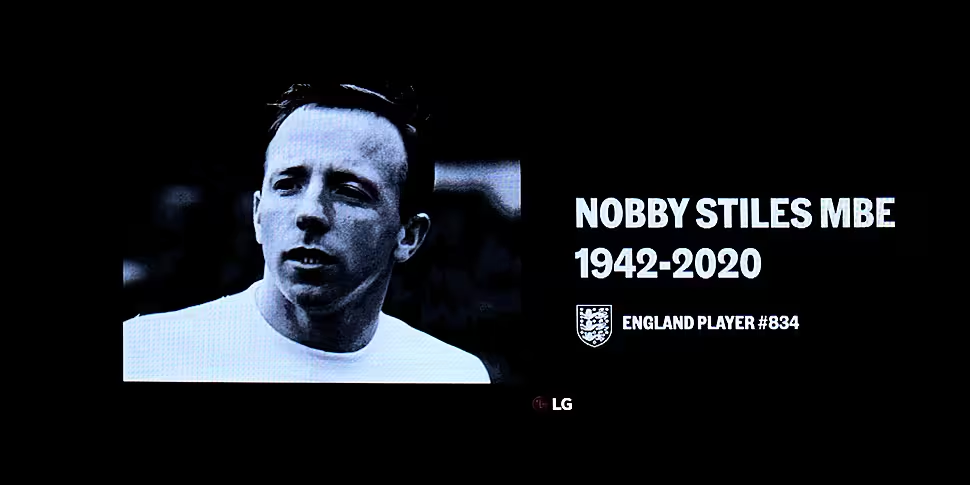There's a 'cancer of denial' in football about the link between the sport and dementia, according to the son of former England footballer Nobby Stiles.
John Stiles says he's 'utterly convinced' there's a link between the disease and heading footballs after seeing the research that has been done.
John's father Nobby - part of the England team that won the World Cup in 1966 - passed away in October at the age of 78.
Nobby had been suffering from dementia in the years before his death.
Speaking on The Pat Kenny Show, John - who is also a former professional footballer - said: "[My father's] memory had been going since his early to middle 60s, and then in 2013 he had a big dip.
"But it had been going on a long time - just a gradual progression."
John said he became aware of a possible link between football and dementia when he spoke to Dawn Astle.
Dawn has become a prominent campaigner on the issue following the death of her own father Jeff, who died in 2004 due to brain trauma linked to heading balls.
John explained: "She told me about the work she was doing. Then I got well into it, and started to do a bit of my own research. And I'm utterly convinced.
"The big thing is it needs to be established properly - but the big scandal for me is that whilst more studies are being commissioned, players are suffering horribly through dementia and other illnesses... and they're not getting anything like the help they should get. I think that is a disgrace."
'Players need help'
John believes more of the damage is done in training rather than matches themselves, noting that several of his father's former teammates have experienced early onset dementia.
He said he's now campaigning to to ensure there's help for former players that are now suffering.
He suggested that if football authorities do believe there's a link, they are "deliberately not saying so because of the consequences - financial and for the brand".
He said: "There is a cancer in football of denial and defence against... funds and studies.
"It needs to be cut out: these players need help and they need it now."
John says he's not trying to ban heading in football, but he argued that research does need to be done so young players coming through the system know what risks are involved.
He said: "I don't think you can ban heading in football, but I do think players should be informed of the risks - like boxers are - of a career in football, and the possible damage that can come from it."









